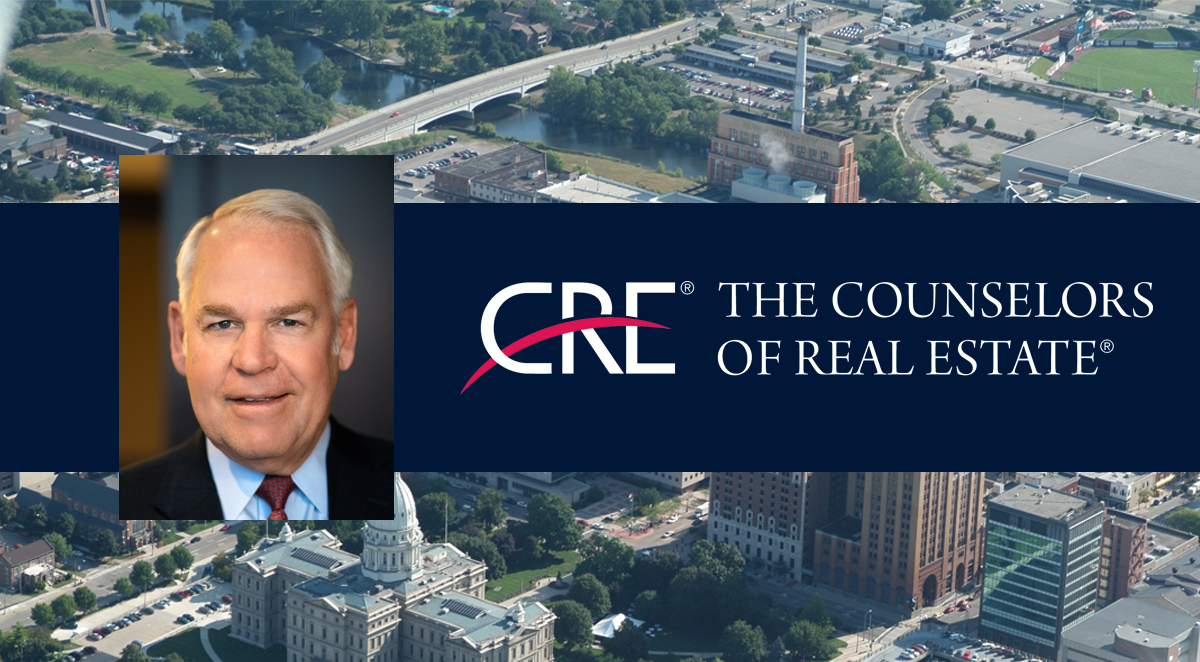Real Estate Counselors Identify Issues Affecting the Industry in 2022-2023
By Ann Kammerer / 09.20.22 / 3 min read
Inflation and interest rates, geopolitical risk, and hybrid work top the list

A leading international group of credentialed real estate professionals have released their annual list of the top 10 current and emerging issues anticipated to impact the industry the most in 2022-23.
In July 2022, The Counselors of Real Estate® identified the Top Ten Issues Affecting Real Estate, a summary of the forces affecting the economy and markets, government and business regulations, and the areas of change and risk management. Characterizing the current era as uncertain, CRE® members pinpointed inflation and interest rates as the leading concern for 2022-23, with geopolitical risk and hybrid work rounding out the top three.
President and CEO Van W. Martin, SIOR, CCIM, CRE of Martin Commercial Properties is a member of the respected real estate organization that compiles the annual the list. The list is determined through polling, discussion and debate among CRE® membership.
Martin is one of just 1,000 designated Counselors of Real Estate®, and the only CRE® in Michigan. Members of the professional organization reside in about 20 countries and U.S. territories, with chapters across the United States, Canada and Europe. Real estate practitioners with the prestigious credential are recognized for their expertise, experience, ethics and integrity in providing advice that influences real estate decisions.
Founded in 1953, The Counselors of Real Estate® applies rigorous, independent and informed analysis on real estate decisions faced by a full range of market participants. The global organization consists of high-profile property professionals, including principals of prominent real estate, financial, legal and business advisory firms, and recognized leaders of government and academia. Membership is selective and by invitation, with commercial real estate professionals with 10 or more years of experience encouraged to apply.
Despite the uncertainty of current economic conditions, real estate professionals can formulate strategies for navigating the coming year by developing a strong grasp of the trends and issues. Following are the Top 10 issues identified by CRE® membership, and a summary of key points.
Navigating the Top 10
- Inflation and Interest Rates. Tightened monetary policy by the U.S. Federal Reserve to tamp down inflation will increase pressure on cap rates and market volatility. With an economic slowdown underway, the greatest recession risk to real estate is whether rising unemployment and lower household income cuts demand for residential and commercial property.
- Geopolitical Risk. The uncertainty of how global and domestic geopolitical risks will affect markets typically manifests in volatility. The war in Ukraine and COVID-19 lockdowns in China aren’t the only risks affecting financial and economic markets. The longer it takes to moderate continued geopolitical uncertainty, the greater the negative implications for real estate.
- Hybrid Work. Employers are struggling to retain workers and rethinking their business models. While COVID-19 accelerated trends like remote work, online retail and migration, the level of decentralization took many by surprise. Current decentralization pressures and the potential for property devaluation will keep the entire financial sector on guard.
- Supply Chain Disruption. Supply chain issues aren’t limited to business—they’re a frustration to everyone who needs goods and services. In the real estate sector, the impact is felt on everything from routine repairs and maintenance to property improvements to new construction. Disruptions will affect nearly every aspect of real estate, with delays raising costs and causing realignment in supply chain strategies and warehousing.
- Energy. Energy conservation, including reform, sustainability and renewables, has been an ongoing topic in real estate since the 1970s. Organizational commitments have sparked demand for alternative energy, expectations for healthy buildings and operations, and climate change. The real estate industry must continue to meet these challenges and engage in sustainability initiatives related to energy.
- Labor Shortage Strain. Worker shortages became acute during the pandemic when workers began to rethink how, when, and even if they would work. Occupiers will lease less space if they lack the workers to run their businesses. Wages rise, prices spike, and a slowing economy reduces real estate transactions.
- The Great Housing Imbalance. Housing in America has been underbuilt for 50-plus years. Land availability; increasing costs for land, labor, and materials; an increase in regulatory barriers; and community opposition to development have all converged. Markets that do not provide lower-cost housing have experienced out-migration and risk that stressed infrastructure capacity.
- Regulatory Uncertainty. The current U.S. regulatory environment at all government levels lacks the clarity, stability, durability and predictability desired by the real estate industry. The uncertainty reflects the continued expansion of federal regulations related to real estate, land use and environmental priorities. The pandemic also prompted new regulations, many of which remain in effect.
- Cybersecurity Interruptions. Commercial real estate is in a new era of cybersecurity risks, driven by 40 years of technological advances that affect main operating systems in buildings. Today’s cybersecurity issues are a perfect storm of tech buildup, lack of skills, cultural ignorance, savvy bad actors, and a dependency on commercial real estate as critical infrastructure.
- ESG Requirements Forcing Change. Environmental, social and governance (ESG) criteria necessitate that real estate investors measure, report, and sometimes publicly disclose their assets’ energy and water use, waste, carbon emissions, and climate change risks. These requirements are also driving innovation in design, development and construction of new buildings, and renovation of existing stock.
Would you like to see the complete list and discussion? Or learn more about the role and initiatives of the Counselors of Real Estate? Visit https://www.cre.org/








